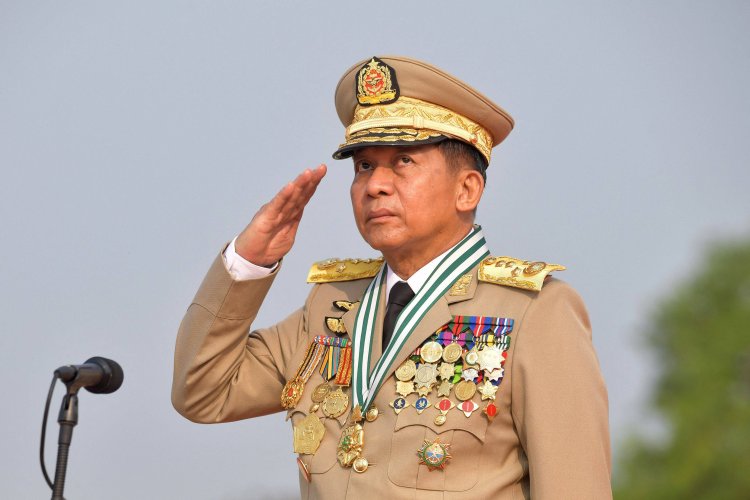Myanmar's Military and Ethnic Minority Allies Mark Cease-fire Anniversary
Myanmar's military government recently held a gathering with leaders from various ethnic rebel groups to commemorate the eighth anniversary of a cease-fire agreement.

Myanmar's military government recently held a gathering with leaders from various ethnic rebel groups to commemorate the eighth anniversary of a cease-fire agreement. However, three of the groups that initially signed the agreement chose to boycott the event, as they strongly oppose the current military regime in power.
This meeting in Naypyitaw marked the first formal gathering between the military government and ethnic minority leaders since the military's takeover of power in February 2021, when they ousted the elected government of Aung San Suu Kyi.
For the military government, maintaining a cease-fire with as many rebel groups as possible is crucial. They have been facing widespread armed resistance from opponents of their 2021 takeover, many of whom have strong ties with ethnic rebel groups. The military has launched offensives in regions traditionally controlled by these minority groups.
In an attempt to disrupt these anti-military alliances, the government has engaged in face-to-face peace talks with ethnic minority leaders since May the previous year, but these efforts have yielded limited results.
Myanmar has 21 established ethnic armed organizations, and some of the largest and most powerful groups, such as the Kachin Independence Army and United Wa State Army, did not endorse the cease-fire agreement because they felt it lacked inclusivity. The agreement was seen as a step towards ending long-standing rebellions against the government, but the government has been hesitant to reach a comprehensive political settlement, which most rebel groups have sought.
The military's takeover in 2021 further undermined the prospects for peace. The head of the ruling military council, Senior Gen. Min Aung Hlaing, expressed during the event that the cease-fire pact, officially known as the Nationwide Ceasefire Agreement (NCA), would remain in force permanently and could not be nullified since it had been ratified by Parliament. He also encouraged groups that had not signed the agreement to do so.
Many ethnic rebel groups have been fighting for greater autonomy for their regions since Myanmar gained independence from the British in 1948. In October 2015, eight ethnic armed groups signed the NCA, and two more joined under Aung San Suu Kyi's civilian government in February 2018, making a total of 10 signatories.
However, three of these signatory groups, the Karen National Union, Chin National Front, and All Burma Students' Democratic Front, chose not to attend the event and declared that the agreement was no longer valid. They argued that the military had violated its principles and carried out harmful attacks on civilians since taking power. They stated that they would not engage in dialogue until their demands, including the military's withdrawal from politics, the establishment of a federal democracy, and international involvement in resolving the crisis, were met.
While the ruling military council attempted to hold peace talks and anniversary events to alleviate financial and diplomatic pressures and regain lost territory, many Western nations maintained stringent economic and political sanctions against the military regime. Under current conditions, these signatory groups did not see any potential positive outcomes from the eighth-anniversary event.
What's Your Reaction?
















